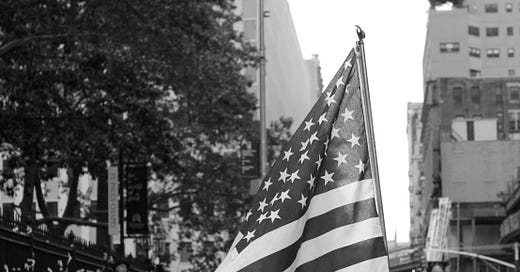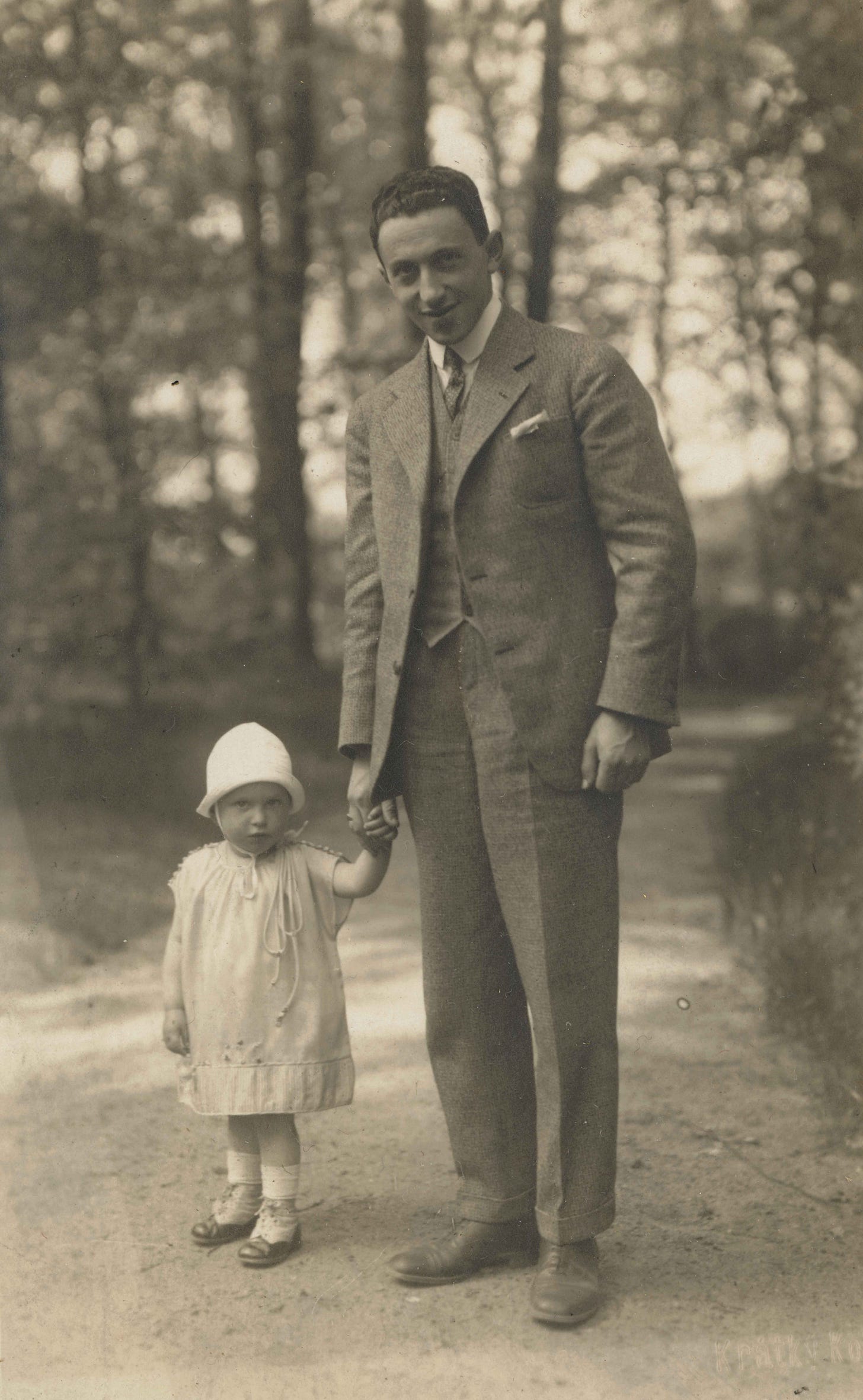My great-grandfather, Josef Dub, favored a German language newspaper called the Prager Tagblatt. It was published from 1876 through 1939 and stopped publication when Nazi Germany occupied Czechoslovakia. It had been considered to be the most influential liberal-democratic German newspaper in Bohemia.
In July 1925, just a couple weeks after becoming a father for the first time, Josef probably read in that newspaper about Mein Kampf being published by a young Adolf Hitler—who had just recently been released from jail after leading a failed coup. A few years later in 1929, and now with two children in tow, my great grandfather got the news of the New York Stock Market crashing and speculation about the forthcoming Great Depression in the almighty America. In 1930, he read about Wilhem Frick, the first member of the Nazi party becoming a minister in a state government. The rising popularity of Frick’s movement would keep being reported on until 1933 when Austrian-born Hitler was appointed as chancellor of Germany.
From there the news moved really fast. In the next six months, Hitler would turn one of the most modern and technologically advanced democracies into a one-party dictatorship. Hitler and his supporters made the illegal legal. They fundamentally changed the framework of the nation in order to stay in power. But all this notwithstanding, the mantra Josef would repeat again and again was: “It could never happen here. Not in our young country. This will never, never happen in our democratic Czechoslovakia.”
He was so, so wrong. But we all know that, right?
We are at a turning point here in the United States. Losing our democracy not only could happen here, but it is happening here. We, as a people, on all threads of the political web, have less than four months in front of us to put aside our disagreements and rally around one goal: save democracy.
Peace and democracy are not guaranteed. Every generation needs to work hard to uphold it and we cannot rely on what our parents and grandparents accomplished as a form of security. As Hannah Arendt taught us in Origins of Totalitarianism, totalitarian rule arises in capitalist societies that have experienced social alienation as a result of economic individualism. Sounds like America to me.
So what do we do? I think the challenge with studying history is that we find ourselves spinning with examples of what to fear but little guidance of what to do. So here is a working list of ways to make sure we are activated and not just educated. (I encourage you to add to the list in the comments).
We need to disagree for the sake of the other. Healthy disagreement is the backbone of democracy and it’s the greatest gift we can give to one another. Disagreeing for the sake of the other is accepting that we can be in partnership without having to agree on everything. (This is an idea that I’ve studied in my fellowship with The Witness Institute - more on that sometime soon).
We need to stop seeing our politics as our identities and absolutely need to stop doing that to others. We are far more defensive to preserving our identities than we are our ideas. Challenging an idea and seeking understanding is what helps us develop community and trust. Challenging someone’s identity is a threat. If we can separate our ideas from our identities, then we can be better participants in the hard conversations required for a healthy democracy. Furthermore, if our ideas become our identity, then our inclusion in society is conditional on agreeing. That should never be the case.
Allow each other to speak in drafts. We need more space for error. It’s normal for people to say or ask the right thing in the wrong way and we need that allowance; participation is a necessary part of progress. Part of this practice is to seek language that unites ideas rather than divides them. Words matter and they have just as much power to heal rifts as they do antagonize them (Rabbi Sharon Brous spoke beautifully about this as it related to the recent campus protests).
Take care of your inner circles and nurture your local community. I worry that we are overlooking our local and state governments for the pageantry of national politics. The lesson here? Go local. We are going to need our city, county and state policymakers to protect us like never before, particularly in light of the recent Supreme Court immunity ruling. We need our neighbors and our neighbors need us, and that is regardless of their identities or political beliefs.
Every single person in this country has strengths and sensitivities to contribute to this nation. Whatever yours are and however you use them, please also do the one thing absolutely necessary and vote like our democracy depends on it.
I’ve spent my career studying stories of authoritarianism and one thing I know in my bones is that it’s a privilege to be able to debate politics. To write this essay is a luxury that people who live in authoritarian regimes don’t have. To contribute ideas is freedom. To have the opportunity to say something that could be disagreed with is safety, even if it hurts my feelings to get a negative response in return. We should all hope for a place where we can be uncomfortable in conversation. As much as I find social media to be toxic and harmful for mental health, and as much as I have serious concern about traditional media and the consumer-driven clickbait it has become, it is a sign of our true freedom that all the screaming heads can even exist. And the freedom we have to anger and activate each other with our different points of views is coming to an end unless we unite around the single idea that we want the right to disagree.
A few years after the Prager Tagblatt, my great-grandfather’s favorite newspaper, had to stop publication, he was deported to an extermination camp with his wife and young son. My grandmother would be the lucky one in the family to survive. She was first sent to Denmark at age 14 and then in 1943 was again saved as part of the rescue operation of the Danish Jews. And generations later, when she would speak to students, she would tell her story of surviving not through the lens of what the Nazis did wrong, but through the stories of what individuals did right. She wanted me and everyone else to know that the collective community is not only capable of wrongdoing but also able to save lives.
To learn more about what happened in Czechoslovakia prior to World War II, listen to the We Share The Same Sky podcast. In Episode 2, I dig into this history about my great-grandparents attitude towards the threatening authoritarianism. You can also buy the book: www.sharethesamesky.com/book.





Agreed. Preserving the right to disagree is the founding principle of democracy. Thank you for this wonderful piece. xxx
I have just returned from a visit to the USA and was rather concerned about politics being totally off the table at social gatherings. Especially the more conservative people felt that they needed to keep their views quiet, as the general discussion just assumes that everyone will vote democrat and the rest is frowned upon. It is so important to be able to discuss views in order to create understanding. Also being concerned about using "incorrect" words stifles conversation ...rather than creating more understanding.
I love the way you put this in some historic context and give some ways of bridging the gap. May this essay be read by many.